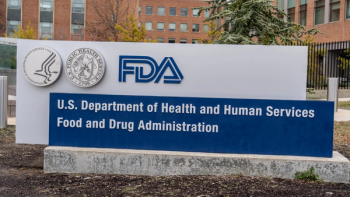
Social Networking Site for Cancer Docs: Bang or bust?
MedTrust Online is pitching customized Web sites linking primary-care physicians to one another, oncology specialists, and a trove of medical content has grabbed a lot of press. Can it fly?
A new startup Web company is entering the social networking niche with customized sites linking doctors who have cancer patients to leading experts, cutting-edge information-and pharmaceutical companies. What sets this endeavor apart from other online resources for physicians is that part of the pitch is speedier access to information about off-label uses of drugs, a cash cow for pharma as well as a regulatory minefield.
MedTrust Online, a Scottsdale, Arizona, spinoff of the state-funded Translational Genomics Research Institute, is offering a one-shop online oncology-treatment resource to primary-care physicians too busy to keep up with this fast-changing and complex disease.
“Doctors report that they do not know how to treat as many as 25 to 30 percent of their cancer cases,” said Erin Curley, a MedTrust Online spokeswoman “It can take them hours and hours to sift through all the information available to find an answers. Our site not only centralizes this content but even allow doctors to ask questions about treatment decisions at the point of patient contact.”
Calling MedTrust a social networking site is a bit of stretch, since no one-on-one chat feature is envisioned. According to its own Web site,
• All the usual content-peer-reviewed medical literature, clinical trial information, treatment guidelines, and FDA announcements-plus nonspecific offerings “compiled from pharmaceutical company databases.”
• A search engine that matches a patient’s condition to relevant treatments.
• An electronic means of contacting other primary-care doctors, oncology specialists, and the site’s own so-called OncoAssist panel of experts.
• The opportunity to build networks of oncology doctors, research institutions, and drugmakers.
The company is partnering with software giant Oracle and IT giant Dell to produce its first site for South Texas Oncology and Hematology (STOH).
If the site’s value for doctors is quick access to the best info, its value for drug companies is direct e-contact with its prescribing audience. And MedTrust singles out the communication of off-label uses of cancer drugs as one of the site’s main draws.
“Currently doctors can get off-label information from drug companies, but they have to request it in writing and it’s a time-consuming process,” said Curley. “Our sites will cut out the delay in delivery of treatment information by enabling doctors to contact drug companies electronically. She emphasizes that all products will be in full compliance with all FDA regulations.
In the age of targeted therapy, a drug approved for one cancer indication often works against other tumor types. According to AHRQ, 60 percent of all cancer drugs are prescribed for off-label uses. Given the life-and-death stakes, doctors and patients alike are open to using off-label and experimental treatments when standard therapies fail-even in the absence of clinical-trial proof.
FDA strictly forbids drugmakers from marketing their products for off-label uses, even as few effective channels exist for researchers and specialists to quickly disseminate off-label knowledge. So the practice persists, and each year drugmakers pay out hundreds of millions of dollars in fines to settle state and federal charges for off-label promotion. Instituted to protect patients from harm, the agency’s tight control of off-label information has come under attack by both the industry and patient advocates arguing that it limits access to quality care.
A Web site that solved the off-label conundrum in pharma’s favor-and in compliance with FDA regs-could be a goldmine. “We’re sitting down with drug companies to help them figure out how to share their information-and get it in front of doctor when they’re actually making treatment decisions,” she said. “Video, e-mail-the sky is the limit in terms of possible platforms.”
Yet several companies that specialize in digital drug marketing say MedTrust’s business model is pie-in-the-sky. Speaking on condition of anonymity, they pointed out two possibly fatal flaws in the plan. For one, MedTrust’s source of revenue is primarily from pharma-ads and med ed-despite the fact that doctors, famously prickly about industry influence, have tended to cold-shoulder such Web sites. Second, drugmakers, famously fearful of FDA regs, have tended to err on the far side of caution when it comes to the blogosphere.
Nor is MedTrust the first Web developer to attempt to monetize physician-industry communications. Sermo hosts a community of 65,000 doctors and boasts a comparatively innovative business model. Offering a free-and free of ads-environment, it turns a profit by selling both access to the doctors and information about their conversations.
MedTrust may prove the experts wrong. But its off-label, ad-based pitch may prove too commercial to win the trust of either pharma or physicians.
Regarding this June 4 news item called ?Social Networking Site for Cancer Docs: Bang or Bust?,? about the website, MedTrust Online, the CEO and president, Christopher Yoo sent Pharm Exec the following corrections or clarifications.
1. MedTrust Online is not a ?social networking? site. We are a portal that provides access to clinically useful information in an easily searchable and sharable format. We are currently using available technologies to help our community find the information they need.
2. MedTrust will not violate FDA regulations regarding the promotion of off-label drug usage. Our goal is to collect and organize the massive amount of information and knowledge in use today?on paper and in doctors? minds?and make it electronic and accessible. We?re not trying to create a communication channel specifically for off-label information, but to provide physicians with the right information at the right time in one easily searchable tool.
3.The statement ?Doctors report that they do not know how to treat as many as 25 to 30 percent of their cancer cases? should be put into context. No judgment about doctors? expertise about cancer was intended. What was meant was that a fair number of cancer patients present in unusual and difficult-to-treat ways. For example, they may not be responding to first- or even second-line therapies, or they may not have ?textbook? cases of cancer. Providing doctors with online information from as wide a range of experts as possible about how to treat such patients will benefit both doctors and patients.
To truly bring about personalized medicine, we need a wide variety of information, including the patient?s natural history and how drugs are used today in cutting-edge situations. To accelerate knowledge sharing and improve patient care is the reason that MedTrust Online exists in this space.
Newsletter
Lead with insight with the Pharmaceutical Executive newsletter, featuring strategic analysis, leadership trends, and market intelligence for biopharma decision-makers.




